Don Juan by Odon von Horvath with graduating MFA students E15, April 2016
Odon Von Horvath’s Don Juan Comes Back from the War translated and adapted by Christopher Hampton is a series of melancholic and bleak encounters that paint a disturbing and unsettling panorama of a post-war society.
Don Juan, the philanderer, is a survivor of the trenches and living in a world entirely composed of women. His health barely intact, he is desperate to track down his virtuous former fiancée, whom he abandoned on his wedding night to embark on countless affairs. In his search for his lost love he contends with an array of members of the opposite sex - newly empowered in an atmosphere of post war optimism.
Writing the play in 1934 at a catastrophic moment in German history, yet setting it in 1918 immediately after the Great War, Horvath comments on a post war optimism being nipped in the bud which gives way to a decaying society where institutionalized violence of a state run by Fascism is on the rise.
Performed by East 15 graduating students of the MFA (Acting) course
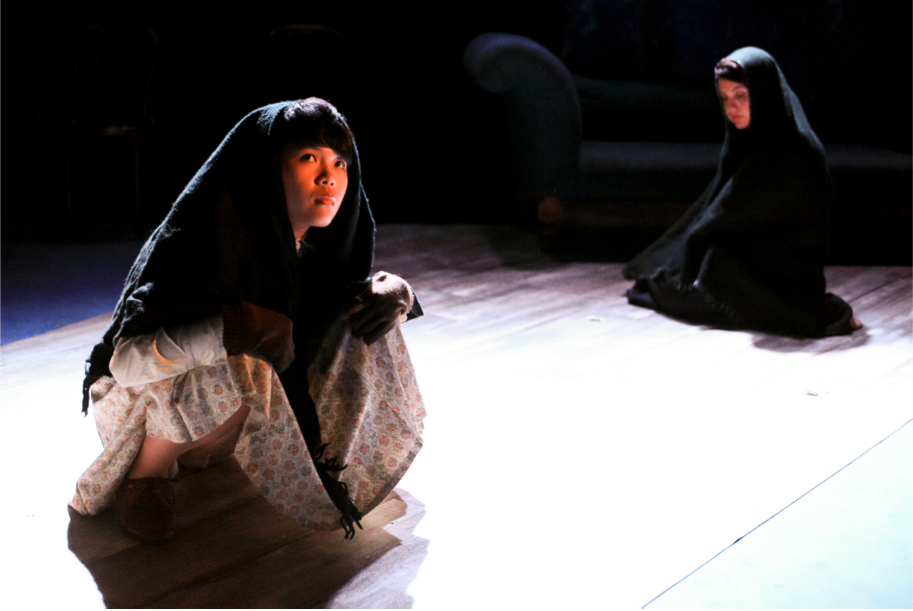
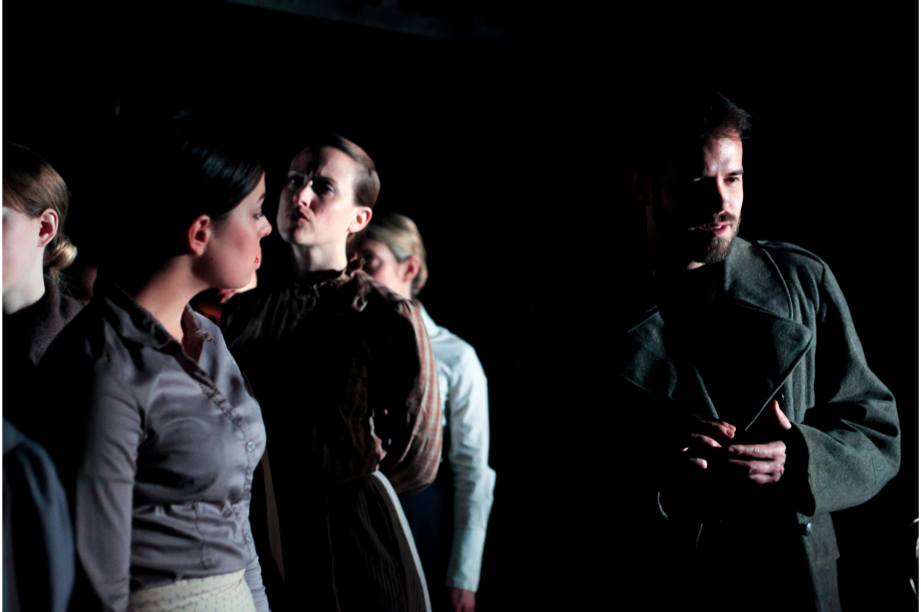
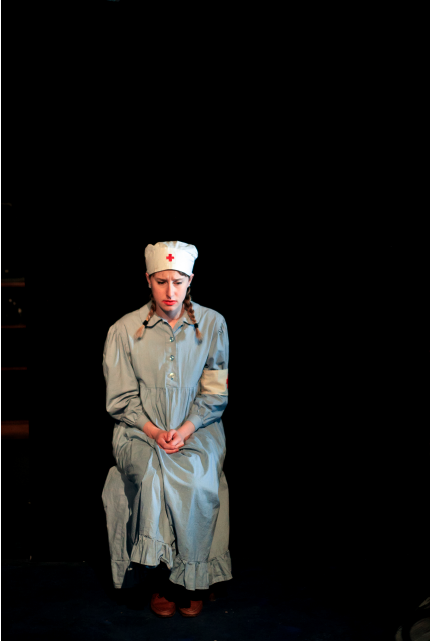
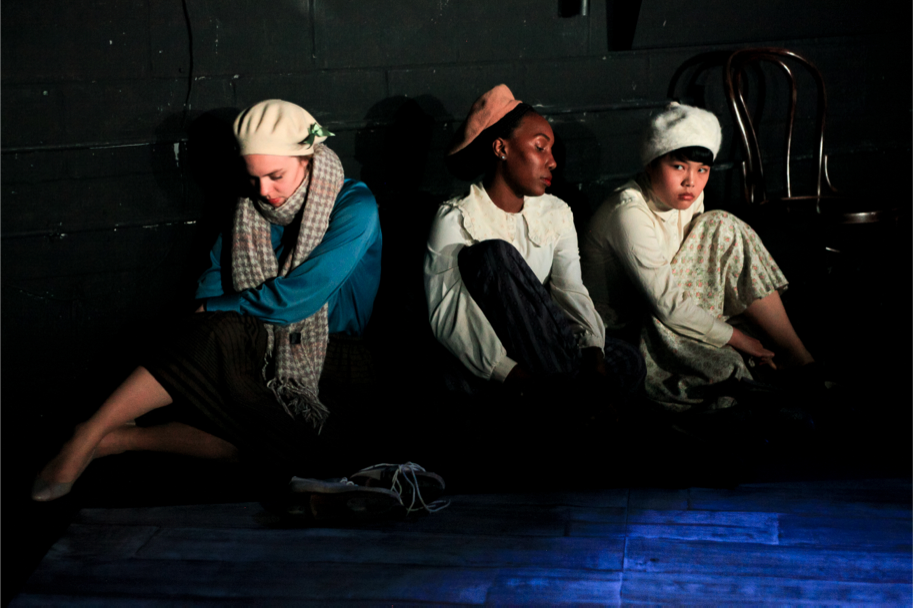
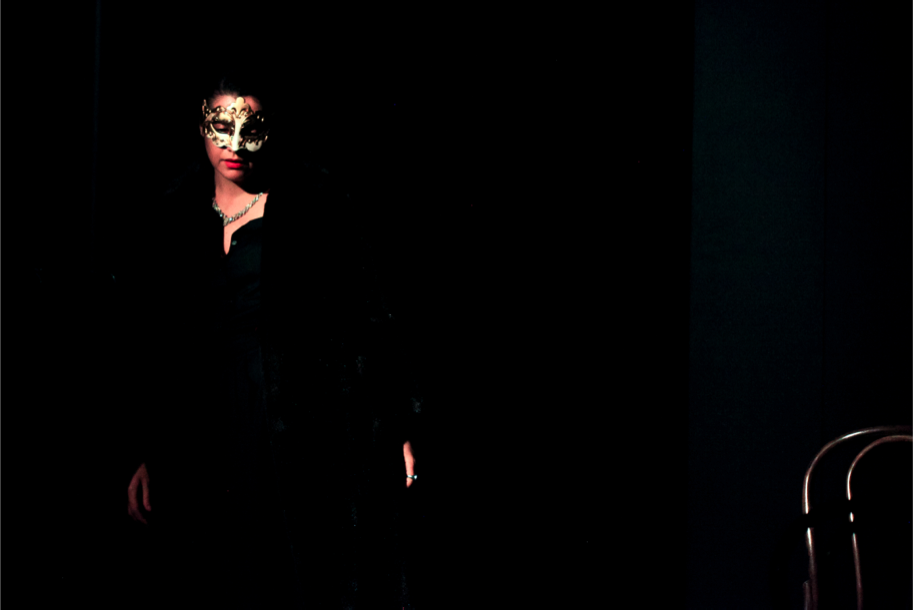
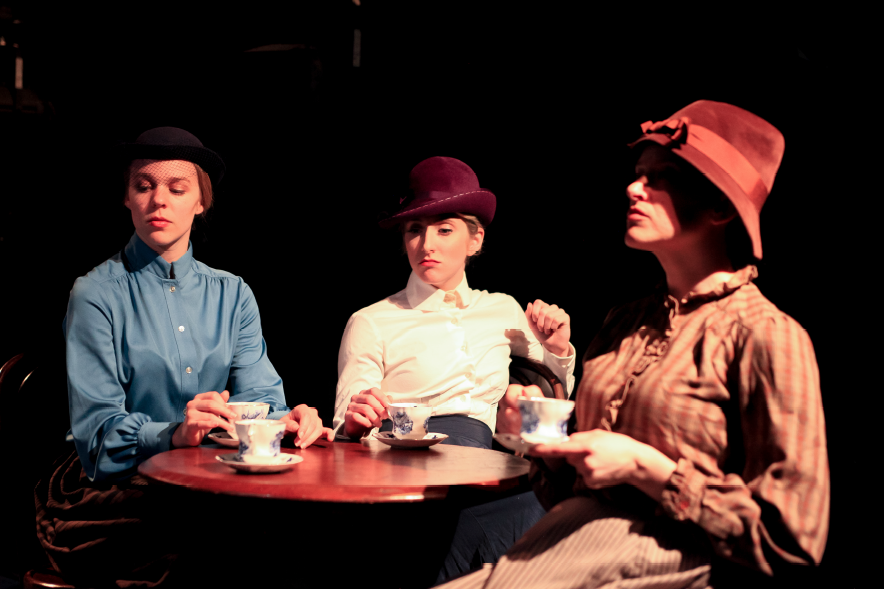
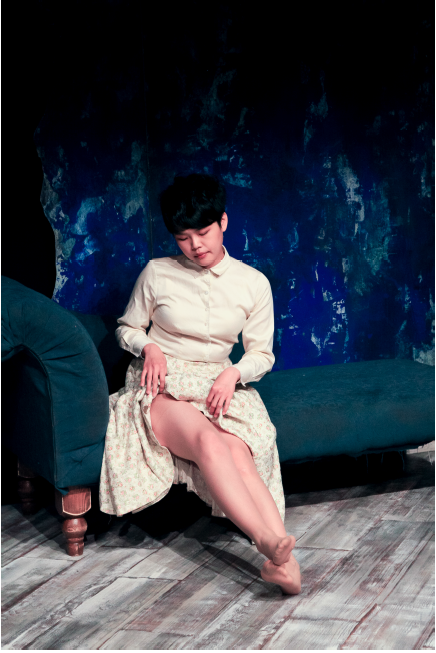
Photography by Andrew H Williams
REVIEW by Stefania Licari, student actor in Don Juan Comes Back From the War
Intra-cultural method has the potential of a fresh innovative system while keeping the simplicity of common sense and traditional wisdom.
Kristine worked with 13 students from different nationalities, mostly Americans, then Taiwanese, Italian, Brazilian and Icelandic. The method brought huge challenges from the very beginning: the target is to bring ourselves on stage and dismiss any concept of a built up character.
The initial reaction from students was a mixture of stupor and excitement, how to forget about the Stanislavski’s method and embrace ourselves as the only thing we can possibly play?
Kristine’s method introduces a new vocabulary, where the centre is not some ghostly character or some made up circumstances but the very actor, with themselves and the pleasure to play themselves and not anybody else while exploring a text through a moment by moment complicite with other fellow actors.
The introductory week saw numerous exercises, some extracts from Lecoq, Grotowski, clowning repertoires, and some originally made by Kristine; all very specific and intended to explore ways of discovering and developing the complicite among actors, and between the actor and the audience.
Once the actor realises that they can’t play anybody but themselves, then finally they can relax and indulge in the pleasure to play on stage. Ultimately, we learn what the audience is really interested in : watching actors enjoying being on stage. The complicite among actors is the base for the freshness, every scene can be rehearsed numerous times but still have elements of unpredictability, when what dictates the scene is not a pre-set idea of what should be happening but the intriguing unfolding of actors having the pleasure to play with each other.
The method helps the students to feel unique therefore empowered as artists. The empowerment comes from realising that each individual is extraordinary in their uniqueness, and by definition the expert of themselves and their own culture. Kristine puts enormous emphasis on each other’s roots and constantly triggers the access to this cultural background.
We were helped to use our own culture to discover the text and the relationships in the play. In some cases we were encouraged to improvise in our own mother tongue language. The power of this guided improvisation exercises lies in the immediate and inevitable groundedness that the actor discovers once their roots are welcomed and used as precious artistic tool. It is like using the right key to unlock a door.
When speaking another language, especially if not understood by others, that actor can free up and explore the complicite and elements in the play which can then be reproduced and reinserted when switching back to English. Once the essence of acting is discovered inside an artist, in a way that is linked to their deepest cultural roots, it gets solid and alive.
Amazing artistic work can then unfold.